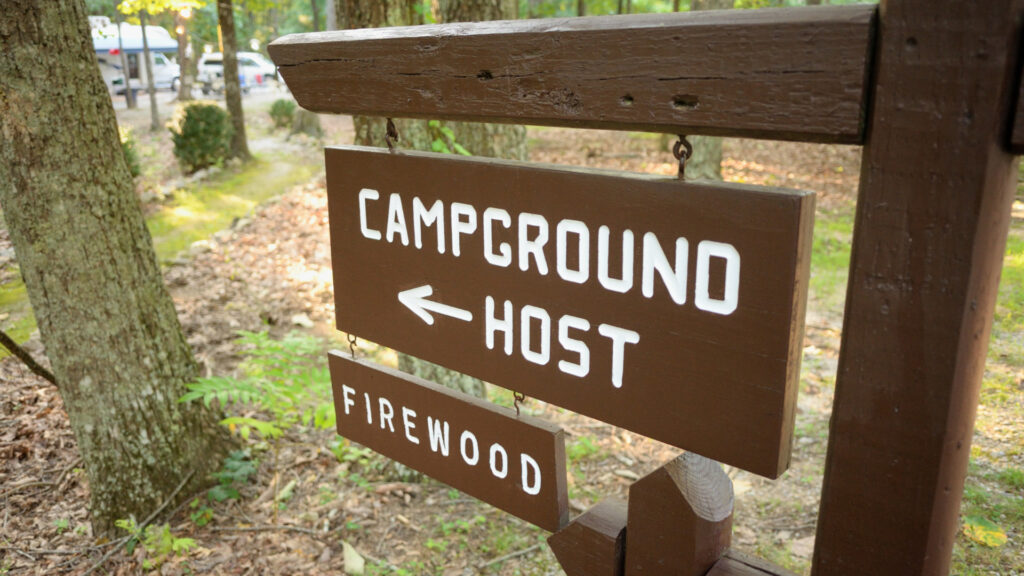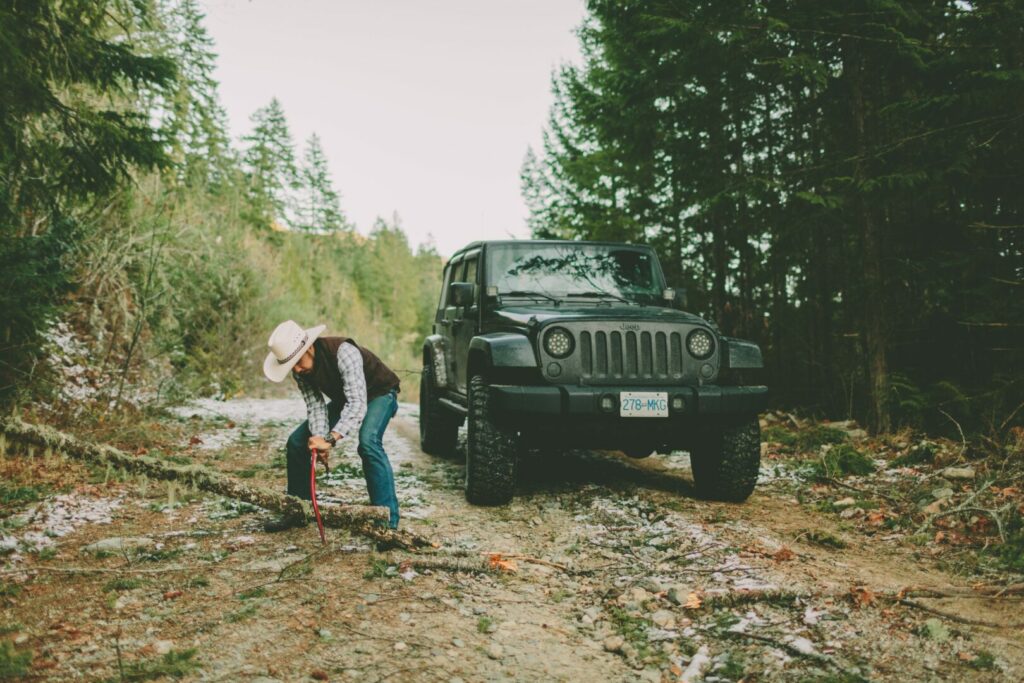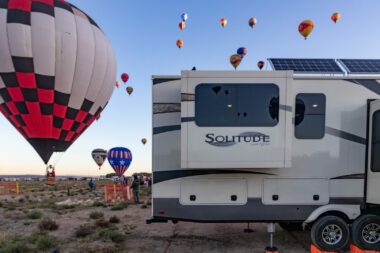Table of Contents Show
Workamping sounds like a great deal — work for a paycheck and free camping. But is it that simple? We will take an in-depth look at what it’s like to be a workamper so you don’t have any workamping regrets.
Beyond the campground’s advertising, you’ll need to consider some things and make sure what might look like a dream gig isn’t a nightmare. So keep reading to make sure you don’t end up in a sticky situation.
What Is Workamping?
Workamping is an exchange of labor for value. Businesses around the country hire workampers to fulfill various jobs, including campgrounds, Christmas tree farms, and more.
The jobs typically include office work, retail, cleaning, maintenance, campground hosting, grounds keeping, security, and others. In exchange for labor, you receive a free campsite and/or payment.
Agreements vary depending on the business and situation, as do the number of hours required, type of campsite provided, etc.
Being a workamper can work great for full-time RVers or retirees. Some people want free camping to help save money, or perhaps they have a limited budget. At the same time, others look at it as an opportunity to stay active and meet new people.
Pro Tip: If you want to seek out a job on the road, check out our article on Where to Find Legitimate Workamping Jobs.

5 Workamping Regrets No One Tells You
Before you leap into workamping, we recommend doing your research. Ask others about their experience. Read the job description thoroughly and have a written agreement with the business owner before signing on.
Why is this important? Too many workampers have happened upon situations they regret later. Here’s the inside scoop.
1. Not All Workamping Positions Pay Money
Workamping positions vary in type of work, time commitment, and payment. Some offer a free campsite in exchange for a certain number of hours of labor per week. The number of hours can range from five to 40.
It’s not uncommon for campgrounds to seek a couple requiring each person to work around 20 hours per week. If you only get paid for free camping, do the math. Is the amount of time you will put in worth the value of the campsite? The most common workamping regret is realizing that you’re working far too much for just a free place to stay.
We recommend steering away from workamping positions that don’t pay money. Instead, look for opportunities that give you a free campsite and pay an hourly wage, or at least pay after you work a certain number of hours.
An agreement that involves money keeps the partnership between you and the business more concrete. Employers may ask you to work more hours than agreed upon when they don’t have a financial obligation.
2. It Can Be Really Hard to Get a Workamping Job
Workamping jobs are a hot commodity. A large pool of RVers on the road means more demand and less supply. Plus, you may have trouble getting a position at the last minute.
Do your research and apply quickly. Better yet, build a relationship with the campground or business you prefer to work with and see if you can get a heads up when they post new or seasonal positions.

3. Some Positions Are Nothing but Physical Labor
Know what the job is before signing on the dotted line. Some workamping positions are physically demanding. Sugar beet farm and Amazon Camperforce positions, for example, require a lot of physical exertion.
Working outdoors on a farm or being on your feet all day at an Amazon fulfillment center can be more labor-intensive than it may seem going in.
Some campground work can also have a lot of physical labor. For example, cleaning positions can hurt your back and knees. If you’re not prepared for hard manual labor, you might find yourself with some workamping regrets.
Maintenance positions can mean being out in the hot sun for hours on end and constantly on the go. As a visitor, campgrounds seem relaxing, but a lot of hard work goes on behind the scenes.
4. 12 Hour+ Shifts Are Hard on the Body and Mind
Discussing expectations before agreeing to a position will set you up for success. Whether the work is physical or not, long shifts can cause strain on your body and mind.
You may find short-term or seasonal workamping jobs appealing; however, doing twelve-hour shifts for a few weeks can be just as difficult as a long-term position. Therefore, it’s essential to know your threshold and what the business expects of you.

5. Seasonal Jobs Mean You Work During the Seasons You’d Rather Play In
A common workamping regret is working during the peak seasons. Being a campground host on the beach in Florida during the winter season in exchange for a free campsite sounds like a dream. But remember, you work there.
You can’t head off to the beach, go for a bike ride, or on a day trip whenever you want. You will have to stick to a schedule set by your boss. Think about whether you could deal with the restrictions or not.
Is Workamping Actually Worth It?
Workamping is worth it for some people, but it’s not for everyone. We recommend thinking through your interests and personality. Consider the regrets we listed above and determine if you would thrive as a workamper.
If you can find a position that fits your skill set and provides fair compensation for your time, go for it. It can provide a way to stay active, meet people, and help with your RV budget.
Where Do You Find Workamping Jobs?
You can find workamping jobs online, by word of mouth, or in RV magazines. Below are several online resources. This is not an exhaustive list, and private campgrounds may only list their open positions on their website. A key way to avoid workamping regrets is to land the right job in the first place.
WorkcampingJobs.com is a free website that pulls in workamping positions from various locations. KOA campgrounds also have some workamping jobs.
Workamper News provides resources for workamping, news, and job openings. Or, you can find campground host positions and more in national parks and on government land at Volunteer.gov.
Michigan Beet Harvest has some short-term seasonal positions helping with the harvest. You can find some positions at Amazon fulfillment centers across the country with Amazon CamperForce. You can work in exchange for a wage, camping stipend, and some benefits.
Is Workamping for You?
You can find many workamping opportunities for various skill sets. If you’ve read this far and think workamping is for you, we say go for it.
Remember to do your research, ask good questions, and ensure your expectations align with the business to avoid workamping regrets. You can always start the process by talking with a workamper in a campground where you stay to learn about their experience.
Workamping can create lifelong friendships. It’s also an excellent opportunity for those who have retired but don’t want to sit still. So, is workamping for you?






